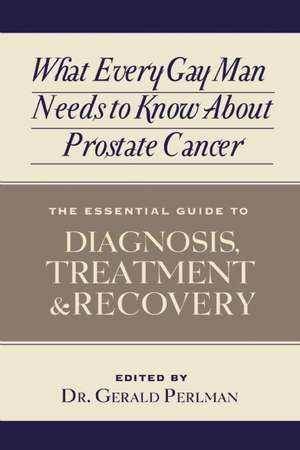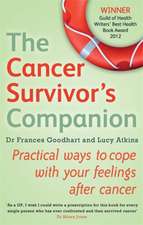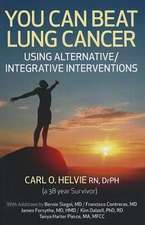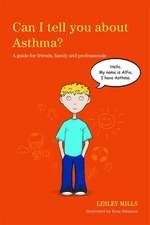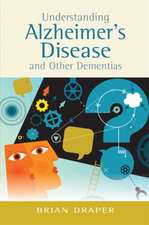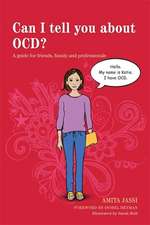What Every Gay Man Needs to Know about Prostate Cancer
Editat de Gerald Perlmanen Limba Engleză Paperback – 12 mar 2013
Prostate cancer is the most common cancer among American men and the second leading cause of deaths in men, after lung cancer. Men have a one in six chance of diagnosis with the number doubling for gay couples. While biology between gay and heterosexual is the same men, cultural differences in the ways in which gay men and heterosexuals experience diagnosis, treatment, and recovery vary widely. Most urologists, support groups, prostate cancer literature assume patients are heterosexual, leaving gay men to seek out reliable information particular to their needs on their own.
What Every Gay Man Needs to Know About Prostate Cancer provides gay men with the essential answers to important questions often left undiscussed, such as: Which treatment will allow me to continue to experience receptive and/or directive anal intercourse? Which treatment might preserve the ejaculate? If I choose a treatment that leaves me with no semen, how am I—and my male sex partners—likely to react? What if my penis never again gets hard enough to penetrate a man? What are the effects of anal intercourse on PSA readings? Is there a correlation between anal intercourse and prostate cancer? How long must one wait after treatment to engage in anal stimulation of any sort? How will the absence of a prostate gland affect anal pleasure? What are the complications if one has HIV/AIDS in addition to prostate cancer? Will the size of my penis shrink after surgery? Also included are an updated glossary of technical terms and an appendix of resources for those seeking further information and/or looking to speak with other gay men who are either going through or have been through what the reader may be experiencing.
Preț: 129.54 lei
Nou
Puncte Express: 194
Preț estimativ în valută:
24.79€ • 26.51$ • 20.67£
24.79€ • 26.51$ • 20.67£
Carte tipărită la comandă
Livrare economică 14-19 aprilie
Preluare comenzi: 021 569.72.76
Specificații
ISBN-13: 9781936833054
ISBN-10: 1936833050
Pagini: 346
Dimensiuni: 127 x 203 x 18 mm
Greutate: 0.34 kg
Editura: Riverdale Avenue Books
ISBN-10: 1936833050
Pagini: 346
Dimensiuni: 127 x 203 x 18 mm
Greutate: 0.34 kg
Editura: Riverdale Avenue Books
Cuprins
Contents
Introduction
Gerald Perlman PhD
PART ONE: Physical and Mental Health Care Providers and Researchers Share Their Knowledge and Advice
Gay Men’s Knowledge of Prostate Cancer
Lara Descartes, PhD
Marysol Ascensio, DrPH
Thomas Blank, PhD
Ashley Crawford, MA
The Trifecta: Quality of Life and Cancer Control after Prostate Cancer Treatment
Vincent M. Santillo, MD
Franklin C. Lowe, MD, MPH, FACS
Prostate Cancer and Sexual Dysfunction in Gay Men
Raanan Tal, MD
Incontinence and Prostatic Health
Matthew Lemer, MD
Prostate Cancer in HIV-Positive Patients in the HAART Era
Matthew S. Wosnitzer, MD
Franklin C. Lowe, MD, MPH, FACS
“Coming Out” to Doctors
Darryl Mitteldorf, LCSW
PART TWO: Gay Men Write about Their Own Experiences of Coping with Prostate Cancer
Active Surveillance/Anxious Surveillance: A Gay Man Chooses Watchful Waiting
“Mark Red”
A Gay Man Makes a Decision: A Method for Identifying the Best Treatment for Prostate Cancer
John Dalzell
How a Gay Man Dealt with Personal Issues Before and After Radical Prostatectomy
Milton Sonday
A Gay Man’s Thoughts for Those Considering Radical Prostatectomy
“Paul Jarod”
Robotic Radical Prostatectomy
Gil Tunnell, PhD
A Gay Man Deals with Prostate Cancer in His Fortieth Year.
“Jared Larsen”
Changes in Sexual Attitudes and Behavior after Treatment for Prostate Cancer
Roberto Martinez
A Sexually Positive Gay Man Compares The Challenges of Being HIV+ and Having Prostate Cancer
Lidell Jackson
Treating Erectile Dysfunction after Prostate Cancer Surgery: A Gay Man’s Experience of Getting a Penile Implant
Joe Davenport
Another Gay Man’s Experience of Penile Implant Surgery
Frank John
A Gay Man Copes with Advanced Prostate Cancer
“Charles Godfry”
Glossary
Gerald Perlman PhD
Introduction
Gerald Perlman PhD
PART ONE: Physical and Mental Health Care Providers and Researchers Share Their Knowledge and Advice
Gay Men’s Knowledge of Prostate Cancer
Lara Descartes, PhD
Marysol Ascensio, DrPH
Thomas Blank, PhD
Ashley Crawford, MA
The Trifecta: Quality of Life and Cancer Control after Prostate Cancer Treatment
Vincent M. Santillo, MD
Franklin C. Lowe, MD, MPH, FACS
Prostate Cancer and Sexual Dysfunction in Gay Men
Raanan Tal, MD
Incontinence and Prostatic Health
Matthew Lemer, MD
Prostate Cancer in HIV-Positive Patients in the HAART Era
Matthew S. Wosnitzer, MD
Franklin C. Lowe, MD, MPH, FACS
“Coming Out” to Doctors
Darryl Mitteldorf, LCSW
PART TWO: Gay Men Write about Their Own Experiences of Coping with Prostate Cancer
Active Surveillance/Anxious Surveillance: A Gay Man Chooses Watchful Waiting
“Mark Red”
A Gay Man Makes a Decision: A Method for Identifying the Best Treatment for Prostate Cancer
John Dalzell
How a Gay Man Dealt with Personal Issues Before and After Radical Prostatectomy
Milton Sonday
A Gay Man’s Thoughts for Those Considering Radical Prostatectomy
“Paul Jarod”
Robotic Radical Prostatectomy
Gil Tunnell, PhD
A Gay Man Deals with Prostate Cancer in His Fortieth Year.
“Jared Larsen”
Changes in Sexual Attitudes and Behavior after Treatment for Prostate Cancer
Roberto Martinez
A Sexually Positive Gay Man Compares The Challenges of Being HIV+ and Having Prostate Cancer
Lidell Jackson
Treating Erectile Dysfunction after Prostate Cancer Surgery: A Gay Man’s Experience of Getting a Penile Implant
Joe Davenport
Another Gay Man’s Experience of Penile Implant Surgery
Frank John
A Gay Man Copes with Advanced Prostate Cancer
“Charles Godfry”
Glossary
Gerald Perlman PhD
Notă biografică
Gerald Perlman, PhD, has been a Supervisor of Psychotherapy at Fordham and Yeshiva Universities and at the City University of New York as well as the William Alanson White Institute where he received his certificate in Psychoanalysis. Dr. Perlman has written numerous articles and chapters, and given presentations on the practice of psychotherapy and the mental health issues of gay men. He is a Former Director of Psychology Internship Training at Manhattan Psychiatric Center in NYC. And he is a former President of the New York Association of Gay and Lesbian Psychologists. Along with Jack Drescher, MD he co-edited, A Gay Man’s Guide to Prostate Cancer (now out of print). In his private practice in NYC, Dr.Perlman specializes in individual and couples therapy. For the past 8 years he has been facilitating an ongoing, open-ended group of gay men who have been diagnosed with prostate cancer under the auspices of Malecare, Inc. a non- profit self-help organization that focuses on men dealing with a variety of cancers. He lives in New York.
Extras
Introduction: The Need for a Book About Prostate Cancer for Gay Men
After I was diagnosed with prostate cancer (PCa) in August 2000, I went through what can be described as an acute stress disorder followed by several months of which, in retrospect, can be described as a post traumatic stress disorder (PSTD). I searched for a self-help group in New York City (where I live and work), that catered to gay men with the diagnosis and treatment of PCa. At the time only one existed in the entire country. Darryl Mitteldorf, a straight man, founded MaleCare, Inc. to serve any man struggling with a variety of cancers. In addition to providing a monthly lecture series, he ran a weekly group for all men diagnosed with PCa and a monthly supplementary group specifically for gay men.
I have chronicled the journey of going from group member to group facilitator in a special edition of The Journal of Gay & Lesbian Psychotherapy (Perlman & Drescher, 2005). Since its publication we have received inquiries, praises, and sometimes hate mail asking why such a book was necessary. After all, the question goes: Isn’t biology biology whether gay or straight? And the answer is: Of course, but during and following the initial prostate cancer diagnosis and after treatment, many similarities between the experiences of gay and straight men diverge.
Until diagnosis, prostate cancer is off most people’s radar screen. When the newly diagnosed seek treatment information from professional publications and the Internet, they will find information almost entirely written by, for, and about heterosexual men and their female partners. Gay and bisexual men find virtually nothing written by, for or about them. The LGBT focused Relay for Life meeting of the American Cancer Society scheduled to take place on March 21, 2010 was canceled because the officials were presumably worried that the general public might react unfavorably to a LGBT targeted event. This was to be the first event of its kind; but homophobia prevailed.
Almost all urologists assume their patients are heterosexual. The typical gay, bisexual, or transgendered patient however, fills out registration forms that include no question on sexual orientation or identity, sees no literature in the waiting room written for gay people, and ends his first meeting with the urologist without ever having been asked about his sexual orientation. The gay patient typically leaves that consultation with his unique questions unanswered: Which treatment will allow me to continue to experience receptive and/or directive anal intercourse? Which treatment might preserve the ejaculate, and if I choose a treatment that leaves me with no cum, how am I and my sex partners likely to react to that? What if my penis never again gets hard enough to penetrate a man? The latter being quite difference from being able to have vaginal intercourse. What are the effects of anal intercourse on PSA readings? Is there a correlation between anal intercourse and PCa? How long must one wait after treatment to engage in anal stimulation of any sort? How will the absence of a prostate gland affect anal pleasure? What are the complications if one has HIV/AIDS in addition to prostate cancer? Will my sperm be spared in case I want to have kids? And the list goes on for each individual gay man. The undercurrent of ignorance that gay men might innocently, or not so innocently, face during their consults is off putting. It is often felt as dismissive and marginalizing. Many gay men, as an already marginalized and stigmatized group, are afraid to speak up about their concerns. Thus the situation puts the onus on the patient to ask the questions that they may be too frightened and/or ashamed to ask.
Socially, gay men live in a world burnished by over 25 years of HIV/AIDS: Illness, activism and death. As gay men navigate the heterosexually biased world of prostate cancer treatment, they must simultaneously confront potential problems of stigmatization within the context of the gay community itself, including post treatment scarring, ejaculation deficits, erectile dysfunction, incontinence, coming out again, etc. It is well understood that most gay men harbor their own internalized homophobia and shame about their sexual orientation and desires. Much of this shame is expressed through concerns about one’s body: The obsession with flaws, the need to appear hyper-masculine, rejection of the effeminate, the fear of aging, etc. Most gay men go through a process of feeling flawed and like “damaged goods”. It is common knowledge that AIDS/HIV exacerbates these feelings. Coping with the possible side effects of PCa treatment adds yet another layer of potentially shame triggering issues with which the gay man has to deal.
In 2009, The American Cancer Society (2009) noted that over 190,000 additional men were diagnosed with PCa and more than 27,000 died from the disease. The average American man has about a 16% chance of being diagnosed with prostate cancer during his life time. And although the rate of gay men diagnosed with or dying from PCa as compared to their heterosexual counterparts has not been studied, the impact on two men partnered and/or living together doubles the odds of the effect PCa may have on a gay man.
Gay and bisexual men diagnosed with prostate cancer face even more obstacles if they are from non-white minority groups. The risk of prostate cancer and mortality among African Americans, for example, is significantly higher then for their white counterparts. African American church congregations and community clinics have recently begun promoting PSA events and prostate cancer awareness. But gay men of color rarely find such community organizations welcoming or tolerant of them, and they are often shut out of these opportunities.
At home, alone or in a loving relationship, gay men face the same morbidity concerns that straight men do, though rarely with the same level of external support regarding their unique needs. It is not easy to find a place where gay men can talk about not being able to share ejaculate or an erect penis with a sex partner. Gay men diagnosed with prostate cancer also revisit the "coming out" experience they may have gone through years before. Every gay man goes through a process of “coming out” as he reveals himself as a gay man to family, friends and colleagues, always with the dread of possible rejection, stigmatization and scorn. The process can be painful, humiliating, and anger provoking. Coming out as a cancer patient re-ignites that very experience and can often end with the same painful consequences. It is curious to note that even in this volume in which gay men reveal their experiences about dealing with prostate cancer, four of the experiential contributors have chosen to use a pseudonym for a variety of reasons. Straight men, in telling their loved ones, their friends and/or their sex partners about their prostate cancer, typically have no comparable historical/psychological experience.
It is well documented that marginalized and stigmatized groups do better and feel freer expressing their fears and concerns in addition to healing better when in the presence of others like themselves. In a predominantly straight support group such issues either do not get
After I was diagnosed with prostate cancer (PCa) in August 2000, I went through what can be described as an acute stress disorder followed by several months of which, in retrospect, can be described as a post traumatic stress disorder (PSTD). I searched for a self-help group in New York City (where I live and work), that catered to gay men with the diagnosis and treatment of PCa. At the time only one existed in the entire country. Darryl Mitteldorf, a straight man, founded MaleCare, Inc. to serve any man struggling with a variety of cancers. In addition to providing a monthly lecture series, he ran a weekly group for all men diagnosed with PCa and a monthly supplementary group specifically for gay men.
I have chronicled the journey of going from group member to group facilitator in a special edition of The Journal of Gay & Lesbian Psychotherapy (Perlman & Drescher, 2005). Since its publication we have received inquiries, praises, and sometimes hate mail asking why such a book was necessary. After all, the question goes: Isn’t biology biology whether gay or straight? And the answer is: Of course, but during and following the initial prostate cancer diagnosis and after treatment, many similarities between the experiences of gay and straight men diverge.
Until diagnosis, prostate cancer is off most people’s radar screen. When the newly diagnosed seek treatment information from professional publications and the Internet, they will find information almost entirely written by, for, and about heterosexual men and their female partners. Gay and bisexual men find virtually nothing written by, for or about them. The LGBT focused Relay for Life meeting of the American Cancer Society scheduled to take place on March 21, 2010 was canceled because the officials were presumably worried that the general public might react unfavorably to a LGBT targeted event. This was to be the first event of its kind; but homophobia prevailed.
Almost all urologists assume their patients are heterosexual. The typical gay, bisexual, or transgendered patient however, fills out registration forms that include no question on sexual orientation or identity, sees no literature in the waiting room written for gay people, and ends his first meeting with the urologist without ever having been asked about his sexual orientation. The gay patient typically leaves that consultation with his unique questions unanswered: Which treatment will allow me to continue to experience receptive and/or directive anal intercourse? Which treatment might preserve the ejaculate, and if I choose a treatment that leaves me with no cum, how am I and my sex partners likely to react to that? What if my penis never again gets hard enough to penetrate a man? The latter being quite difference from being able to have vaginal intercourse. What are the effects of anal intercourse on PSA readings? Is there a correlation between anal intercourse and PCa? How long must one wait after treatment to engage in anal stimulation of any sort? How will the absence of a prostate gland affect anal pleasure? What are the complications if one has HIV/AIDS in addition to prostate cancer? Will my sperm be spared in case I want to have kids? And the list goes on for each individual gay man. The undercurrent of ignorance that gay men might innocently, or not so innocently, face during their consults is off putting. It is often felt as dismissive and marginalizing. Many gay men, as an already marginalized and stigmatized group, are afraid to speak up about their concerns. Thus the situation puts the onus on the patient to ask the questions that they may be too frightened and/or ashamed to ask.
Socially, gay men live in a world burnished by over 25 years of HIV/AIDS: Illness, activism and death. As gay men navigate the heterosexually biased world of prostate cancer treatment, they must simultaneously confront potential problems of stigmatization within the context of the gay community itself, including post treatment scarring, ejaculation deficits, erectile dysfunction, incontinence, coming out again, etc. It is well understood that most gay men harbor their own internalized homophobia and shame about their sexual orientation and desires. Much of this shame is expressed through concerns about one’s body: The obsession with flaws, the need to appear hyper-masculine, rejection of the effeminate, the fear of aging, etc. Most gay men go through a process of feeling flawed and like “damaged goods”. It is common knowledge that AIDS/HIV exacerbates these feelings. Coping with the possible side effects of PCa treatment adds yet another layer of potentially shame triggering issues with which the gay man has to deal.
In 2009, The American Cancer Society (2009) noted that over 190,000 additional men were diagnosed with PCa and more than 27,000 died from the disease. The average American man has about a 16% chance of being diagnosed with prostate cancer during his life time. And although the rate of gay men diagnosed with or dying from PCa as compared to their heterosexual counterparts has not been studied, the impact on two men partnered and/or living together doubles the odds of the effect PCa may have on a gay man.
Gay and bisexual men diagnosed with prostate cancer face even more obstacles if they are from non-white minority groups. The risk of prostate cancer and mortality among African Americans, for example, is significantly higher then for their white counterparts. African American church congregations and community clinics have recently begun promoting PSA events and prostate cancer awareness. But gay men of color rarely find such community organizations welcoming or tolerant of them, and they are often shut out of these opportunities.
At home, alone or in a loving relationship, gay men face the same morbidity concerns that straight men do, though rarely with the same level of external support regarding their unique needs. It is not easy to find a place where gay men can talk about not being able to share ejaculate or an erect penis with a sex partner. Gay men diagnosed with prostate cancer also revisit the "coming out" experience they may have gone through years before. Every gay man goes through a process of “coming out” as he reveals himself as a gay man to family, friends and colleagues, always with the dread of possible rejection, stigmatization and scorn. The process can be painful, humiliating, and anger provoking. Coming out as a cancer patient re-ignites that very experience and can often end with the same painful consequences. It is curious to note that even in this volume in which gay men reveal their experiences about dealing with prostate cancer, four of the experiential contributors have chosen to use a pseudonym for a variety of reasons. Straight men, in telling their loved ones, their friends and/or their sex partners about their prostate cancer, typically have no comparable historical/psychological experience.
It is well documented that marginalized and stigmatized groups do better and feel freer expressing their fears and concerns in addition to healing better when in the presence of others like themselves. In a predominantly straight support group such issues either do not get
